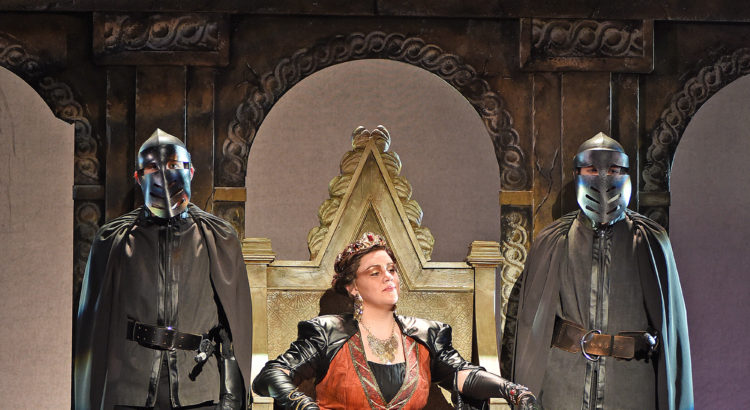This was a very experimental play, but Shakespeare plays are so commonly performed that any rendition not beyond experimental or without a famous actor in it won’t get recognition. At first, I was confused by the modern setting, it felt weird hearing about Rome and an emperor from a bunch of guys in suits and joggers, but I quickly got used too it and actually liked the modern relevant feel this play had.
The first interesting plot point to contemplate is whether Brutus should betray his best friend, Julius Caesar, by joining the Senate conspiracy to kill him. It is an interesting dilemma because I think it is heroic to turn on someone you love for what you believe is the best for the general good of your country. This is why Brutus decides to kill Caesar, he believes this is the best solution to maintain the freedom of Rome, there wasn’t any selfish reason attached. However, Brutus is portrayed as the antagonist of the play for killing Caesar. From the play, we don’t know whether Caesar was a good or bad person, and therefore there is no plot that suggests killing him is any worse than not killing him. Still, the stabbing of Caesar is portrayed in such a gruesome and murderous scene, that the moral I took is that murder is never acceptable in any circumstance.
The most important aspect was the lighting. The settings were built so that the feeling could be easily manipulated by the lights, for example, the opening scene had all of the characters standing in front of giant white blocks. The only colors in the whole play were white, black and red. This little color variance made the tone of the color that was set by the lights more prominent. The lighting was often extremely bright or dark to contrast the different emotions and thoughts of the characters. When characters were in disagreement or friction, they would be portrayed with a different level of brightness. As soon as characters started to agree with each other, all of a suddenly the lighting on them would match as well. The radiant lighting made the play feel factioned and it made events feel more intense. Bad events felt evil, courageous events felt heroic, and gloomy moments felt hopeless and depressing. Lights were even used to cast the audience as part of the play. All the lights in the theater would turn on, so even the back rows were completely lit when the audience would be portrayed as the roman mass of citizens.
Brutus and Marc Anthony speaking at Caesar’s funeral are the two best monologues I have ever heard. I was previously familiar with snippets of these speeches, but I have never heard them in their entirety or seen them performed. Brutus’s rhetoric is all based on ethos and logos, it is extremely logical and he is an honorable man considering he is on the Senate. Marc Anthony speaks with all pathos, contemplating on why he loved Caesar, and it is Marc Anthony’s speech that sways the crowd and starts the civil war. This is so true of life, emotional appeal trumps everything during a speech or debate.
Julius Caesar is the best example of why Shakespeare needs to be performed instead of read. When the characters speak, the syllable emphasis is extremely important. During a dialogue, how the actor stresses “sh” sounds or “t” sounds can make him sound conniving or sympathetic. Cassius was my favorite character mainly because of how great a job he did speaking. He spoke with clarity, like a voice of reason, and had such strong pronunciation and emphases when he spoke that I knew he was a persuasive character who would be able to sway Brutus, who was a lot gentler in his pronunciation and speech. Cassius also had a great straight face throughout the play, he was serious and never smiling. Brutus was a lot more emotional, and his movements would vary from comical to melodramatic. This suprised me, I never imagined Brutus being portrayed in such a weak and malleable manner. It took some of the dignity out of Brutus, which is a necessary trait for Brutus to have to justify the killing of Caesar.
Lucius was by far the most experimental character in this rendition of Julius Caesar. Most of the time he wasn’t a plot character interacting with the rest of the characters. Instead, he would interact with the other characters in a mysterious and surreal way. It was like he represented the thoughts and conscience of other characters. He would stand next to the other characters while they were talking, mimicking them with interpretive movements. He spoke no words only performing interpretive dances. Lucius would break out of the plays dimensions to foretell what will happen or to tell what is really happening with his movements. My favorite dance of his was when he acted out Caesars stabbing before it happened.
I liked the subtle touches of this play. The circular language in Julius Caesar is very apparent and this play would add a comical emphasis when reciting these lines. There was often a confusing mixture of “I and you” “here and there” “With and without” and the actors would looked confused when speaking them. Shakespeare loves having blood on characters hands, this play had no shortage of blood on hands and arms. They also incorporated the mysterious babushka lady (look her up), which was very fitting for this play. My favorite touch was the Jazz Trio, who would provide little breaks throughout the play for our minds to rest and relax.



-49-copy-2-750x410.jpg)



-49-copy-1-750x410.jpg)
-49-copy-750x410.jpg)
